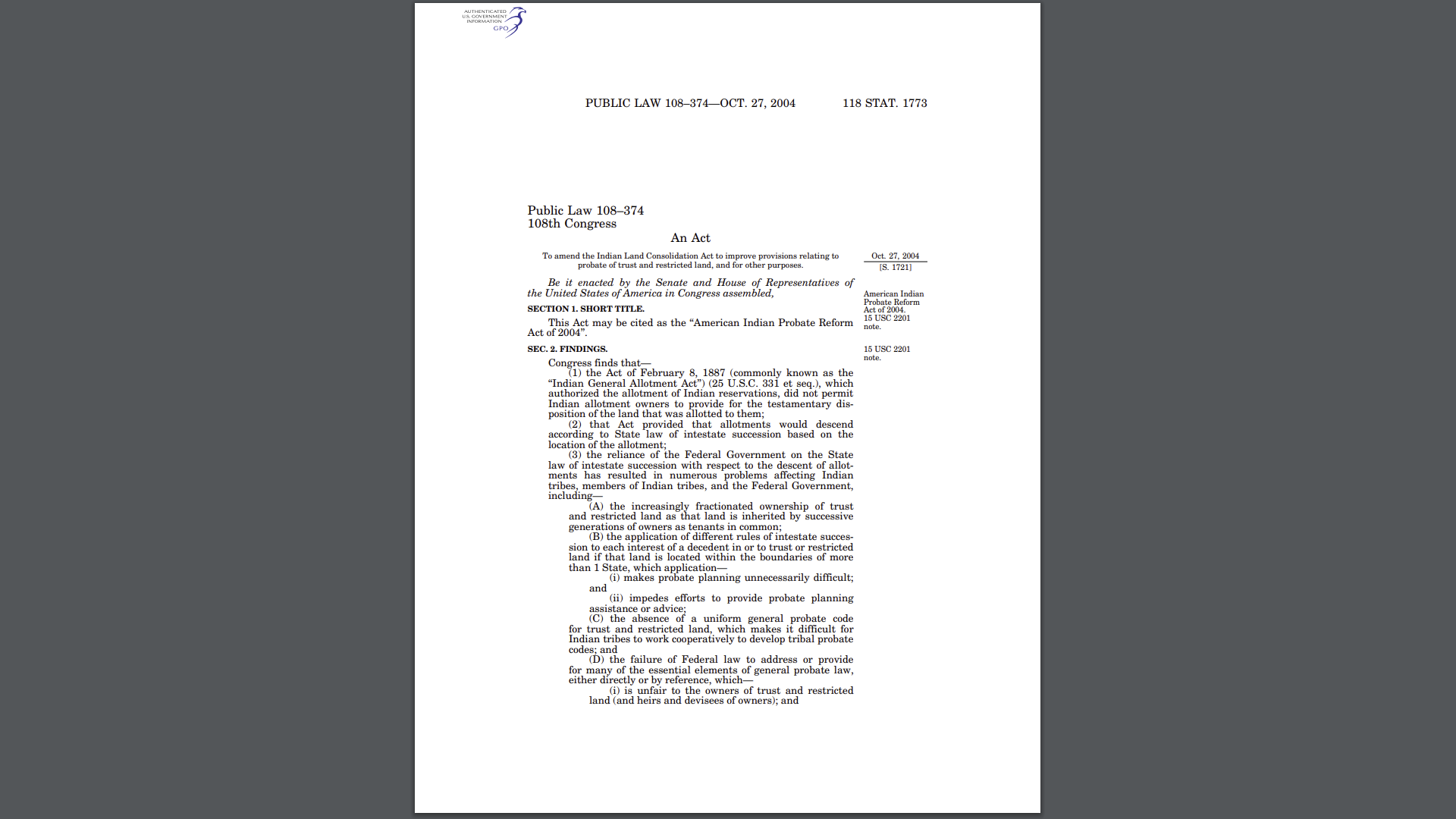Federal Laws
American Indian Probate Reform Act of 2004
An Act To amend the Indian Land Consolidation Act to improve provisions relating to probate of trust and restricted land, and for other purposes.
The Marshall Trilogy is a set of three cases decided by the United States Supreme Court that define the respective relationships among the federal government, states, and Indian tribes. These court decisions by Justice John Marshall are still relied upon and cited by federal Indian law ad tribal law practitioners today.
Key Cases
Johnson v. M’Intosh Indian land rights, 1823
Cherokee Nation v. Georgia Trust relationship, 1831
Worcester v. Georgia Inherent Indian / tribal sovereignty, self-determination, laws of Georgia have no force in Cherokee lands, 1832
Marshall Trilogy
Indian Law Bulletins | U.S. Regulatory Information
Indian Law Bulletins are a current awareness service of the National Indian Law Library. The purpose of the Indian Law Bulletins is to provide succinct and timely information about new developments in Indian Law.




